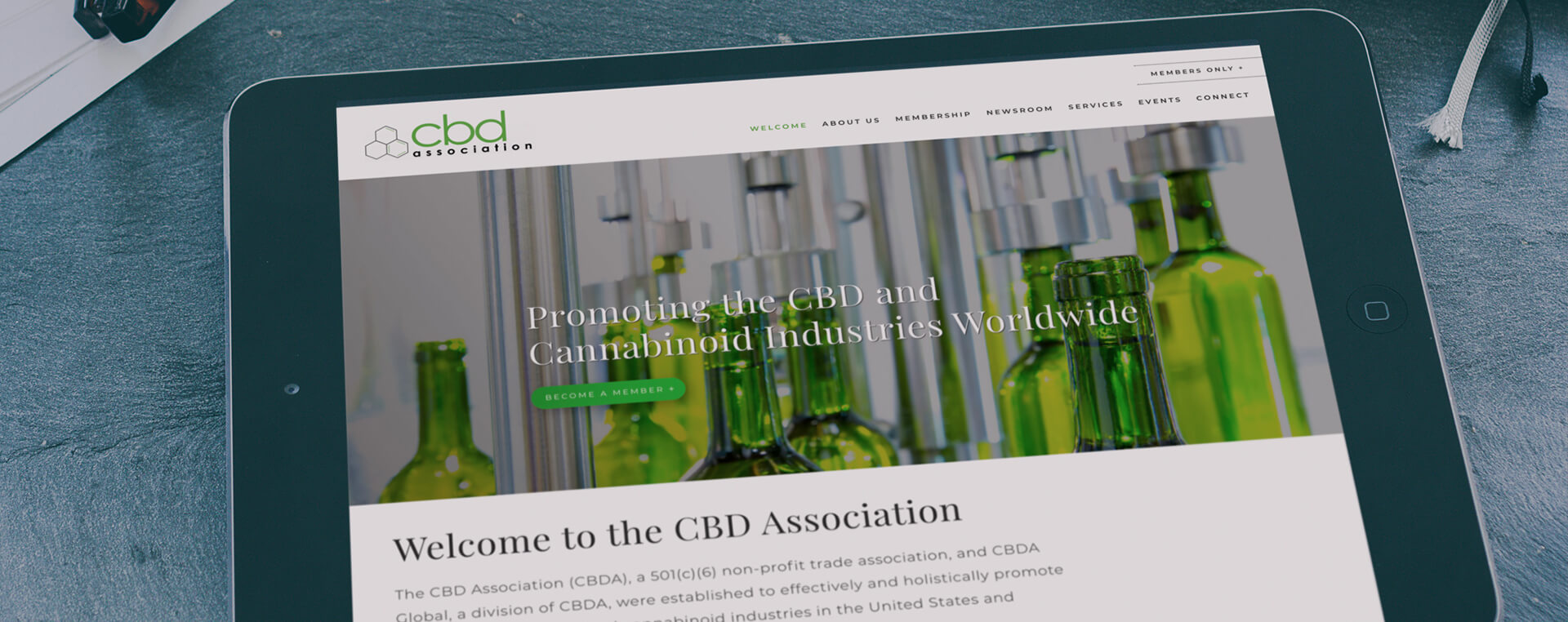In this time of quarantine, I spend a lot of my day like many of you – searching the internet. As an attorney in the cannabis and CBD industry, I’m especially interested in the latest news and updates on all things CBD.
As many of you know, much like the information available about COVID-19, there is a lot of misleading and sometimes flat-out wrong information available about cannabis and CBD. Why?
One reason for the excess of misinformation is the lack of clear statutes and regulations addressing cannabis, hemp, and CBD on both the federal and state level. “Grey area” doesn’t really begin to cover the regulatory and legislative void in the CBD industry. This uncertainty has led to industry stakeholders, clients, and the general public to ask me such questions as:
What is it? Is it legal? Where can I buy it legally? Does it work?
The internet and social media are filled with the same questions. To make matters more confusing for consumers, there is an abundance of “experts” giving advice about what is legal and what is not. From media outlets to trade associations to regulatory marketing services, there is an overwhelming amount of incorrect information about the legality of cannabis and cannabis-derived products coming from self-proclaimed “trusted” sources.
The pet food/products industry is a great example of the consumer minefield. Misinformation abounds about its legality. Let’s take a look at a few common questions you may have about pet products and CBD:
Question – is CBD in animal products, animal drugs and animal feed legal/allowed?
Animal Products – In general, animal products (feed, tinctures, toys, supplements, etc.) is one of the biggest sectors of growth for the CBD industry. As a general rule, animal feed and animal veterinary products (i.e. anything your vet might prescribe for you to give to your animal to treat an illness or symptom of illness) fall squarely under the regulatory authority of the FDA.
Answer – Animal products are a large category of products. In order to understand what is and is not legal within this category, we must break down the category into Animal Feed and Animal Drugs. Note, there are currently no regulations that address the use of CBD or cannabis in animal products NOT for ingestion.
Animal Drugs/Veterinary Products– The Federal Food, Drug, and Cosmetic Act gives the FDA the legal authority to approve and regulate drugs for animals. Before a drug company can market an animal drug, the company must get the drug approved by the FDA.
Answer – The FDA has not approved the use of cannabis, hemp or CBD in any animal drug.
Animal Feed – The Federal Food, Drug, and Cosmetic Act requires food for both people and animals to be safe, produced under sanitary conditions and properly labeled.
“Animal feed includes pet food and pet treats, as well as feed for food-producing animals, such as cattle, pigs, chickens, and farmed-raised fish. Unlike animal drugs, animal feed does not have to be approved by the FDA before it can be marketed. However, the FDA makes sure the ingredients in the feed are safe and have an appropriate function, and many ingredients must be approved by FDA before they can be used in animal feed. FDA also evaluates the human food safety aspect of animal feed for food-producing animals. That is, FDA makes sure it’s safe for people to eat food products made from animals that ate the feed.” FDA – What the FDA Does and Does not Regulate
The FDA, as of April 2019, has maintained the following stance regarding CBD in animal feed – “FDA has therefore concluded that it is a prohibited act to introduce or deliver for introduction into interstate commerce any food (including any animal food or feed) to which cannabidiol has been added.” FDA Regulation of Cannabis and Cannabis-derived Products including Cannabidiol (CBD)
Answer – Under the FDA’s federal authority, it is impermissible to add CBD or any cannabis-derivative to animal food sold in interstate commerce.
But wait… some states have taken a different stance.
Virginia’s definition of a permissible “Hemp Product” under Va. Code Ann. §3.2-4112 includes animal bedding, animal feed and oil containing an industrial-hemp extract.
New York’s Department of Agriculture issued the following requirement for licensed participants in the New York Industrial Hemp Program – “Research Partners making any CBD product intended for human or animal consumption or absorption into the body must ensure that their CBD products are free from chemical, physical, and biological contamination.” New York Industrial Hemp Program Guidance.
This guidance is in direct contradiction to the New York Department of Agriculture’s stance that “CBD has not been approved as a food, a food additive or ingredient by the FDA. Under both federal (FD&C Act, sec. 301(b)) and state Agriculture and Markets Law (AML sec. 200), the addition of CBD to food is prohibited. The sale of food and beverages containing CBD is prohibited in every location.” New York Department of Agriculture Industrial Hemp Program Frequently Asked Questions
Bottom line: Federally, it’s clear that animal drugs and animal food containing CBD are not permitted. By State, that answer changes with little to no clear pattern.
As a consumer, you might look to the internet and industry “experts” for more clarity. But, beware, many of the so-called “experts” have yet a different answer:
1. Cannabissupplementsforpets.com – “The sale of hemp-derived CBD oilis legal in all 50 states as long as it is sold as a dietary supplement in accordance with FDA standards.”
2. CBDoil.org – “On the federal level, CBD is legal.”
3. Projectcbd.org – For the time being, the use of cannabis for animals is in a state of flux. As a pet owner, you can buy CBDcontaining products for pets over the counter and, if your state has a cannabis law, you can purchase human or animal labeled products containing THC and give them to your pet.
4. US Hemp Authority – “Pet Relief, the market-leading, #1 most-trusted organic CBD and hemp pet product manufacturer, today announced that it is the first “pet only” CBD company to achieve the prestigious U.S. Hemp Authority (USHA) Certification™. The U.S. Hemp Authority Certification Program is the hemp industry’s initiative to promote high standards, best practices, self-regulation, and to give confidence to consumers and law enforcement that hemp products are safe and ” – BusinessWire.com.
5. CBDindustryassociation.org – “CBD oil benefit #6: Help your pet feel relaxed…Check out all of our great CBD products for dogs here!”
It’s a minefield of lies and inaccuracies folks…and not just with the CBD pet food industry.
Voices of “authority” in our industry don’t even agree. Trade associations issue certifications to companies producing and selling products in interstate commerce that the FDA deems illegal. Nonprofit organizations claiming to value consumer safety publish misleading and, oftentimes, incorrect information about both products and the legality of them.
My conclusion is that all you can do is make sure you have a real source of accurate information about what’s legal and what’s not. Before you spend your hard-earned cash to develop a business in a new state, ship your product across state lines, or purchase a product for yourself, your family or your four-legged best-friend, check with a trusted source, a second opinion if you will, about the legality of your CBD product. If you don’t, it could cost you a lot of money and possibly your business.


